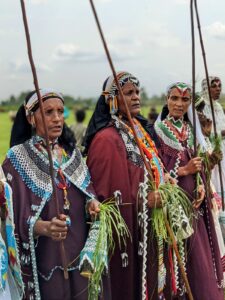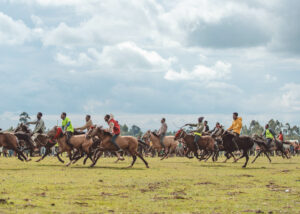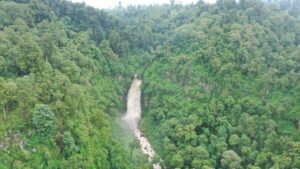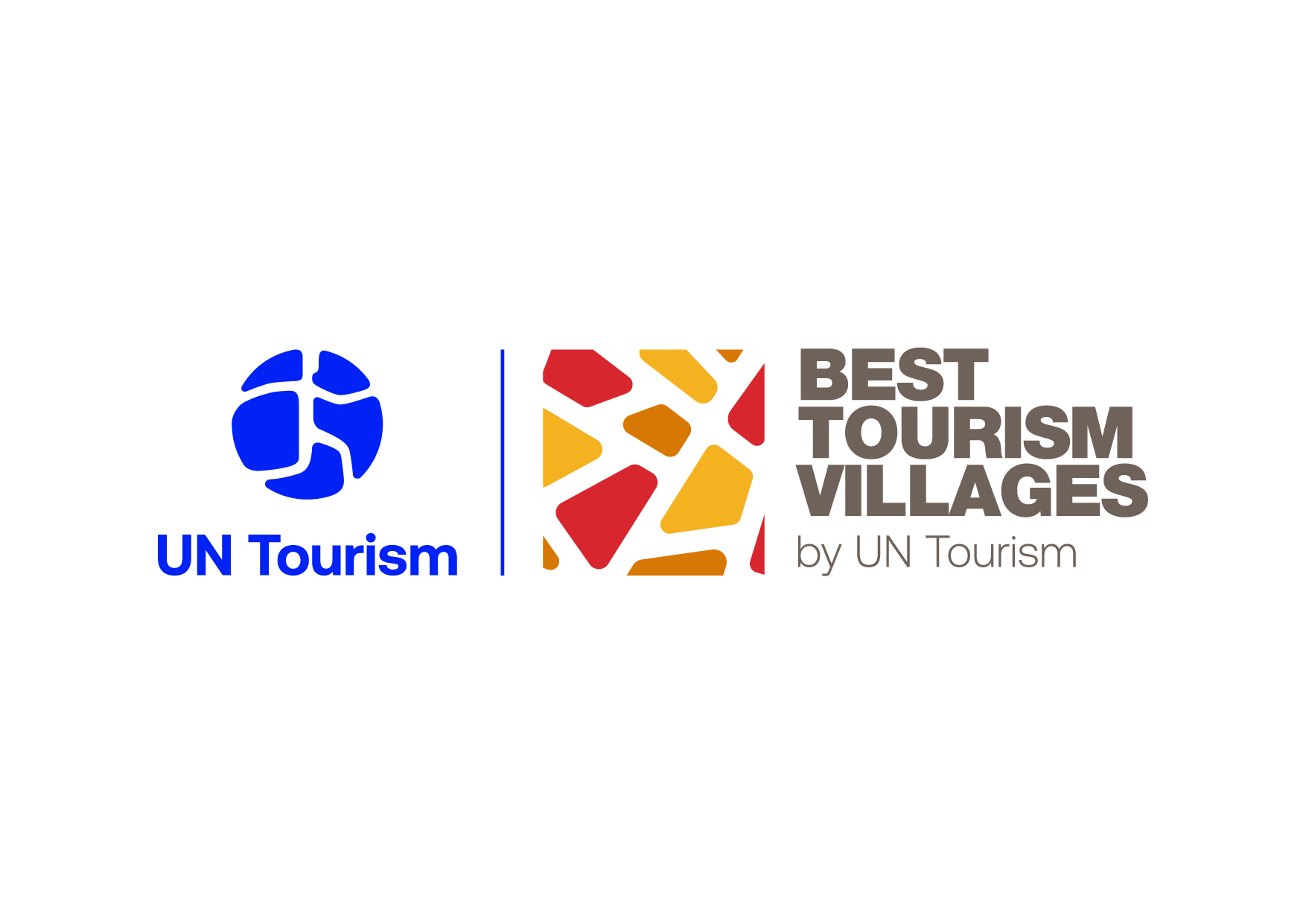The village is named after the enchanting “Lephis Waterfall”, which crosses a designated dense forest of the “Gambo Forest Zone” administered by the Oromia Forest and Wildlife Enterprise. The village mainly represents the locality as a brand community-based tourism initiative, Lephis Ecotourism Village.
The “Lephis Ecotourism Village” stands out as a notable community tourism initiative, supported by the Ethiopian Sustainable Tourism Alliance (ESTA), which has successfully navigated an organized project design, feasibility studies, and active community engagement. This accomplishment has not only led to the site’s prominent recognition but has also earned it acclaim at the national level. The business success in the village emanated from efforts by different stakeholders in maintaining the village structure, business operation and creativity including during the difficulties of COVID-19 disease and market fluctuations under Lephis Ecotourism Cooperative.
Lephis has been established as a unified tourism community who are creative enough to produce and supply local tourism products. The idea of its establishment and operation both emanated from the community itself. The visitor program is run by professional tourist guides, the production and selling of handicrafts are managed by local women and the locals organize horse riding services. Tourists would have the opportunity to co-produce and experience all this.
HIGHLIGHTS
-

Mishike Handicraft Association
The village prioritized the underrepresented women and/or the unemployed to engage in the handicraft production and selling business and therefore established the Mishike Handicraft Association. This association symbolizes Lephis and is recognized as the most creative in using the local grass and bamboo trees as resources for creating artistic locally ornamented handicrafts. Mishike Handicraft Association was dominantly run by women who benefited economically and, subsequently, transformed their families lives. In such a manner, most of the members initially transformed and started new businesses even creating jobs for others. Hence, the cooperative proportionally replaces the new entrants including those who are disabled. Members of the handicraft producers and sellers travelled to India and gained experience from some of the best handicraft enterprises, and the program was a paradigm shift for its members. The village also receives continuous support from local authorities in the form of access to finance, technical support and extensive market linkages. Members of the handicrafts regularly participate in different trade shows and exhibitions, which promote their business and enable enlarged outlets in the capital, Addis Ababa.
-

Horse riding festival
The village converted its historical tradition of horse-riding festival into one of the key tourism products the village offers, which the tourist can easily interact with the local community and buy the tour package that organized regularly, and upon request. The event that the local community lived with for centuries was accompanied by different ceremonies of the Arsi-Oromo cultural activities of Praise, songs and traditional folks. In particular, the event added a definite core value to the spectacular Lephis forest and landscape which has succeeded in drawing more visitors to the area.
-

Innovative governance system
The creation of Lephis Ecotourism Cooperative aims to make nature-based tourism a complementary economic means for the community. Prior to the village’s transformation to a designated formal tourism business, the abundant natural resources were left neglected and only used for the simple daily consumption of life.
The cooperative’s big umbrella shelters different associations established with their own unique purposes and work for one strong vision. Conservation of the forest and the locally featured environmentally friendly accommodation services offered by the community are sound businesses which are highly compatible with sustainability.
The village started the initiative using start-up money with small amounts collected from households. The local initiative later brought a project-based investment aided by USAID through the Ethiopian Sustainable Tourism Alliance (ESTA) project, which created a strong business base in the form of a cooperative. The project effectively laid the foundation, establishing tourist facilities that delivered capacity-building programs and business linkages. Likewise, the village implemented a standard business structure where 60% of the dividends go to community shareholders, 30% are re-invested in community enterprise and 10% for local development.

